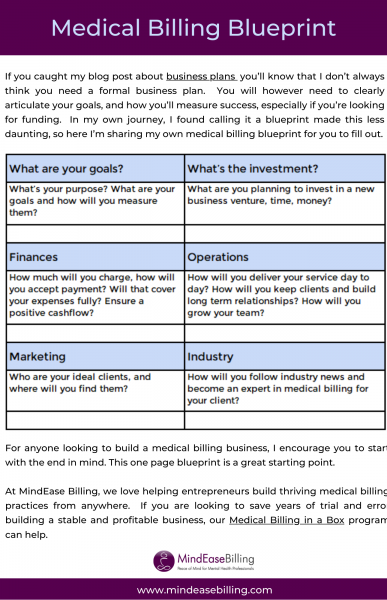One of the questions I hear most often from entrepreneurs just starting out is if they really need a formal business plan.
Although my usual philosophy is that everyone should start with the end in mind, business plans come in all shapes and sizes — some more useful than others. It’s your thought process, and how you track your progress towards your goals, that matters.
Here are two reasons you don’t need a business plan (and one reason why it might be good to have one in your back pocket!)
One: To satisfy a course or business coach
Some of the coaches we worked within the early stages of starting MindEase assigned business plan writing. Since we already had a loose blueprint for our business, it was tedious busywork to copy and paste our ideas into their template.
I never got a satisfying reason for why it was necessary since we weren’t going after any funding. We already had our ideas put to paper and our goals laid out, so putting into a different format wasn’t helpful.
Two: To formally organize your thoughts
When you’re starting a business, it’s imperative that you get your thoughts organized. This is so you can clearly communicate your ideas, translate them into marketing materials or operational processes, and keep your stakeholders informed.
But that doesn’t necessarily require a business plan.
As long as you’re able to clearly articulate the following, you’ll be golden:
- Your purpose
- Who your ideal client is, and where to find them
- How much you’ll charge and why
- What your goals are and how you’ll measure them.
While these are elements of a traditional business plan, you arguably don’t need the traditional business plan format to document the design of your enterprise.
So why bother with a business plan?
If you choose to start a business that requires more money than you have on hand, you might consider a loan, a line of credit, or an investor. Most banks require a business plan in a specific format in order to apply. Even if your wealthy aunt Liz wants to help you get started, she might expect a business plan.
But before you get started, contact the bank or review their website to see what the requirements are. If a business plan is required (it probably will be), see if you can get guidance on what they want to see. There are tons of business plan templates online, most of them a cookie-cutter version of the last, so see if you can find one that matches the bank’s criteria.
Until you need a formal plan, work up an informal design that feels more comfortable. Maybe call it a roadmap, a blueprint, something less daunting. And if guidance from a billing professional looks like help to you, schedule a consultation today at https://mindeasebilling.com/consultations/
